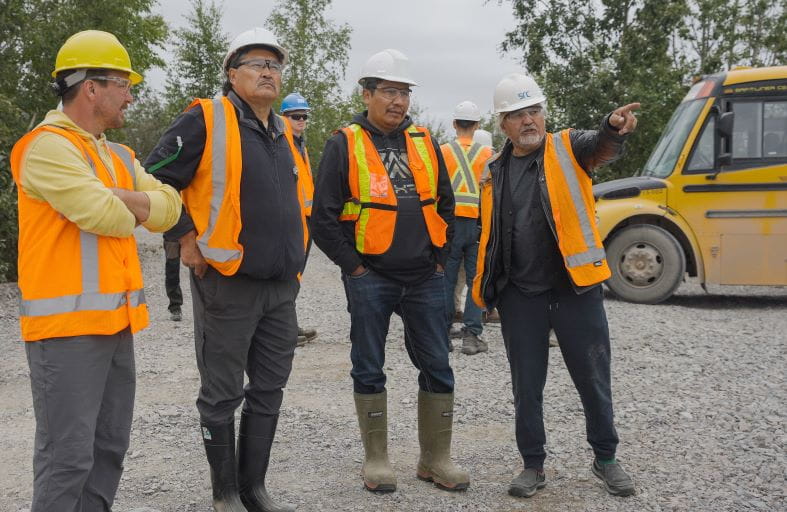Released on January 29, 2025
An Indigenous Action Plan being set in motion by the Saskatchewan Research Council (SRC) aims to engage and advance the participation of Indigenous Peoples within the organization and communities across Saskatchewan.
SRC is proud to launch a new Indigenous Action Plan that centers on Indigenous Peoples, communities and businesses to help achieve shared goals. Continuing to build trust and strong relationships with Indigenous communities is a hallmark of this plan.
"The Saskatchewan Research Council has a long history of collaboration with First Nations and Métis communities, spanning more than 40 years in areas such as ecological studies, student enrichment and job training opportunities, and longer-term initiatives including remediation of former mine and mill sites in northern Saskatchewan," Minister Responsible for SRC Warren Kaeding said. "The new Indigenous Action Plan further builds upon these relationships to ensure continued Indigenous participation in Saskatchewan's key economic sectors and growing workforce."
SRC's Indigenous Action Plan has been built to align with the Truth and Reconciliation Commission of Canada's (TRC) Call to Action 92 and will be lifted by four integral pillars: Employment, Leadership, Indigenous Community Relationships and Business Development.
"Continuing to build trust and strong relationships with Indigenous communities is a hallmark of this plan," President and CEO of SRC Mike Crabtree said. "Advancing reconciliation with Indigenous Peoples is not only the right thing to do, it is simply good business. We encourage all our staff, collaborators and clients to embrace reconciliation each and every day."

Of particular importance within the Plan will be two new programs supported by the Employment pillar: an Indigenous Workforce Program and an Indigenous Summer Student Program, Kiskiyihta (Kiskee ih-taah), which is a Cree word meaning to learn or to know.
Together, these programs will help SRC increase recruitment and hiring of Indigenous Peoples by collaborating with Indigenous educational institutions and training entities to develop strategies for the retention and advancement of Indigenous employees. The collaborating organizations will also support SRC in finding potential candidates for SRC job openings and for the Indigenous Summer Student Program.
Other important initiatives within the Plan include the formation of an Indigenous Advisory Committee, increasing Indigenous procurement via SRC's Indigenous Procurement Policy, growing the number of Indigenous learning opportunities for SRC employees, and strengthening meaningful engagement and collaboration with Indigenous communities and Tribal Councils.
SRC would like to recognize and thank Saskatchewan-based Indigenous artist Arnold Isbister for his valuable contributions to the Plan. Isbister provided much of the document's original artwork, helping bring the Plan's holistic approach to life with his colourful interpretations of its four Pillars and its symbolic cover pages.
SRC is Canada's second largest research and technology organization with 1,400 clients in 22 countries around the world. With more than 350 employees, SRC has been helping clients solve technology problems, make improvements, increase productivity and develop new markets for more than 77 years. More details about SRC's Indigenous Action Plan can be found at src.sk.ca/IAP.
-30-
For more information, contact:
Allison Collins
External Relations
Saskatchewan Research Council
Phone: 306-385-4208
Email: allison.collins@src.sk.ca

